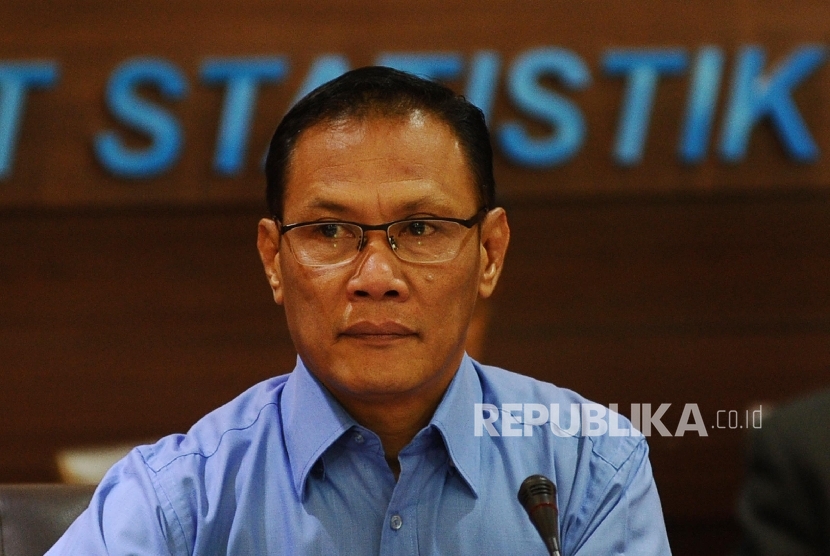REPUBLIKA.CO.ID, JAKARTA -- Indonesia's unhusked rice production is expected to reach 56.54 million tons during the period between January and December. The Central Bureau of Statistics (BPS) revealed the data here on Wednesday.
BPS Chief Suhariyanto noted that based on the area sampling frame (KSA) method, unhusked rice production from January to September had reached 49.65 million tons. The potential for unhusked rice production could reach 2.66 million tons in October, 2.10 million tons in November, and 2.13 million tons in December.
"We can see the potential during the next three months. Of course, this potential can change. It can be lower due to 'puso' (harvest cannot be completed)," Suhariyanto stated.
Three provinces forecast to record the highest rice production are East Java, with 10.54 million tons of production; West Java, 9.54 million tons; and Central Java, 9.51 million tons.
According to Suhariyanto, data correction on rice production will allow the State Logistics Agency, or Bulog, to set the monthly unhusked rice absorption in each province. The unhusked rice production of 49.65 million tons during the January-September period is equal to 28.47 million tons of the commodity.
Taking into account the rice production potential in the next three months, total rice production in 2018 is forecast to reach 32.42 million tons. As compared to rice consumption during the period that is expected to reach 29.57 million tons, the country will enjoy a surplus of 2.85 million tons of rice, he remarked.
The BPS has improved its methodology of rice production assumption to have the food data correction. The agency has cooperated with the Agency for Assessment and Application of Technology, Ministry of Agrarian Affairs and Spatial Planning, Geospatial Information Agency (BIG), and the National Institute of Aeronautics and Space or LAPAN.
Under the cooperation, the institutions will improve the methodology using KSA to calculate harvesting area using BIG's satellite image technology and paddy field land mapping from the Ministry of Agrarian Affairs and Spatial Planning.


